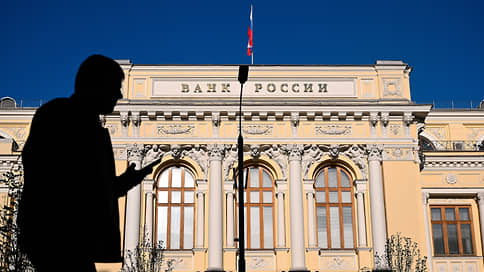The Central Bank proposed models of work for small banks
[ad_1]

To intensify the work of hundreds of banks with a basic license (limiting their operations), the Central Bank is going to implement a number of initiatives. In particular, it is planned to allow the opening of a correspondent account in a foreign bank on a permanent basis, to expand the possibilities of working with securities. At the same time, the Central Bank persistently suggests changing the forms of work – either creating alliances or moving under the “umbrella” of a large bank.
The Bank of Russia is going to expand business opportunities for banks with a basic license. About it was declared at a meeting of the head of the Central Bank Elvira Nabiullina and other top managers of the regulator with representatives of 12 banks with a basic license (a total of 101 banks have it), organized Association of Banks of Russia (ADB). Information about the meeting held the day before was disclosed on Friday, June 2. The regulator plans to implement a number of initiatives in the near future: to support granting the right to such banks to open correspondent accounts abroad on a permanent basis (as long as the norm is valid until the end of the year, 18 banks have opened such accounts), to expand the list of securities in which you can invest, to clarify the procedure for reserving conditional credit obligations, which will reduce the burden on banks’ capital, and other measures.
According to ADB Vice President Alexei Voilukov, at least ten more banks may exercise the right to open a correspondent account with a foreign bank in the near future. He explained that “the process of opening correspondent accounts is painstakingly lengthy and complex – it entails the restructuring of compliance, currency control arises, and additional specialists may be needed.” At the same time, according to Mr. Voylukov, the association “one of these days” will introduce a bill that will remove this temporary condition.
On the part of the Central Bank, a concept of possible further formats for the work of small banks was presented.
“The regulator made it clear that he does not like that many banks with a basic license do not do business, but only keep most of the funds in correspondent accounts with the Central Bank,” said a banker who was present at the meeting. Two years ago, the head of the Central Bank, Elvira Nabiullina, estimated that 45% of such players did not find their business model.
In such a situation, the regulator once again emphasized the previously put forward proposal – either to unite several banks into an alliance, or to work on an umbrella model with a large bank. In his presentation, the head of the Banking Regulation and Analytics Department of the Central Bank, Alexander Danilov, noted that according to the “alliance” model, banks are united, creating a management company, its capital is formed from their contributions, the participants will be jointly and severally liable for each other’s obligations.
The second model, the “umbrella”, involves the consolidation of banks under a major player, to whom they will pay royalties. “A large bank can provide services, liquidity, analytics, advice, so there will be no need to have a specialist in information security, currency control, etc. in a small bank, while small banks will be able to provide cross-border settlement services for them,”— explains Mr. Voylukov.
According to one of the bankers in a small bank, “alliances” may be of interest to non-captive regional banks operating in isolation from large structures, which may find it difficult to scale their business within the framework of the current regulatory policy of the Central Bank and market competition. The umbrella model does not yet look like an advantage for small banks, he said. “Large banks will receive income from providing services to us, and after some time they may begin to withdraw customers from us, and the risks of increased competition are increasing,” the banker argues.
In general, both models raise the issue of initial investment, development of the regulatory framework.
There may also be a third option, adds Alexei Voylukov, the creation of a single IT platform with an outsourcing company for the partnership of banks. “However, the cost of creating such a platform is high, so the question of financing will also arise here, who will create it,” he notes.
At the meeting, the banks, for their part, raised issues of regulatory burden. In particular, the issue of the need to obtain a credit rating was raised, because the Central Bank already “sees through” its supervised organizations. However, the decision was not in favor of the banks, says one of Kommersant’s interlocutors. So, the bankers were explained that within the Central Bank the exchange of supervisory information is impossible, so no one is going to cancel the receipt of ratings.
[ad_2]
Source link





